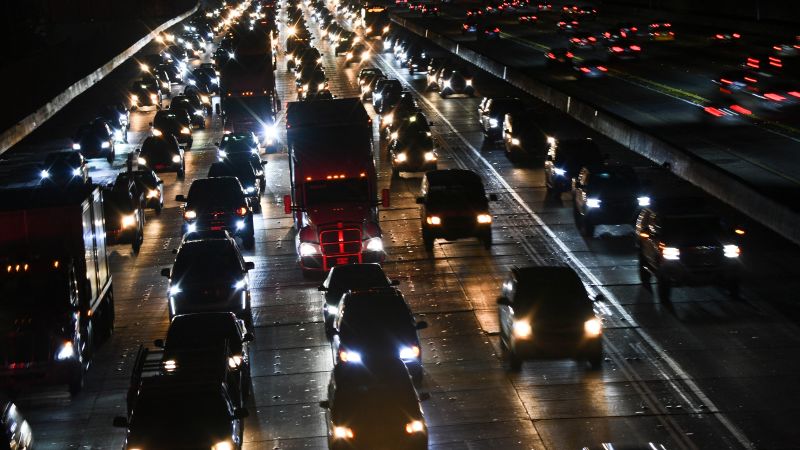A lot has changed in the time since Gerald Ford was president and Steve Jobs and Steve Wozniak founded Apple. But here’s something that hasn’t changed much: the pace at which car insurance rates are rising.
Car insurance rates are up almost 21% for the 12 months ended in February, according to new Consumer Price Index data released Tuesday. The last time car insurance rates rose that much on an annual basis was 1976, not counting January, which saw the same annual rate increases.
The rise in car insurance rates alone contributed half a percentage point to the overall 3.2% inflation rate last month. It represents one of many obstacles standing in the way of the Federal Reserve’s 2% inflation goal and continues to be a pain point for Americans struggling with some of the highest prices in decades.
A confluence of factors is behind the trend.
The cost to repair a car is up 6.7% for the year, according to CPI data. That’s a much slower rate compared to recent years. But it’s still much more expensive compared to before the pandemic, said Tim Zawacki, principal research analyst at S&P Global Market Intelligence.
Contributing to the rising cost of repairing a car are more expensive auto parts and wage increases for car mechanics due to labor shortages, Zawacki told CNN.
More severe and frequent car accidents
The number of traffic deaths in the US was up by around 7,000 in 2022, to 42,795, compared to before the pandemic, according to the National Highway Traffic Safety Administration’s latest estimates.
That has led to an increase in claims that is well above historical averages because of their severity, according to LexisNexis Risk Solutions data. Their data indicates that insurers booked losses on 27% of collision claims in 2022. That’s three percentage points higher than 2021.
LexisNexis also attributes that rise to riskier driving behaviors such as speeding, texting behind the wheel and driving under the influence of either drugs or alcohol.
Beyond the repair costs associated with more severe car damage, they also “tend to lead to a higher share of claims with attorney representation, which usually ends up being more costly for insurers,” said Zawacki.
There’s a lot of variation from state to state regarding the car insurance rate increases that drivers are facing. That’s partially because auto insurers price their plans based on the losses they’re incurring on a state-by-state basis, Robert Passmore, vice president for personal lines at American Property Casualty Insurance Association, a trade group representing insurers, previously told CNN.
Nevada drivers saw the highest jump — an increase of 38% — in car insurance rates across all states besides Wyoming from January 2023 to February of this year, according to data S&P shared with CNN. (Wyoming wasn’t included because S&P couldn’t collect data from the state.) The minimum required coverage policy that drivers in the Silver State have costs the most across all states, according to Bankrate data as of last month.
Meanwhile, drivers in North Carolina saw the smallest bump in car insurance rates, up just 5.5% over that same timeframe. That’s partially due to the state’s unique format that includes a rate bureau that submits filings on behalf of the entire industry. That bureau settled on a 4.5% average statewide increase for 2023 and another 4.5% increase in 2024.
“We do expect trends to moderate on a national basis over the course of the year, particularly in the second half of 2024,” Zawacki said. “But that doesn’t mean drivers in some markets won’t continue to see rate increases.”
Read the full article here













Leave a Reply